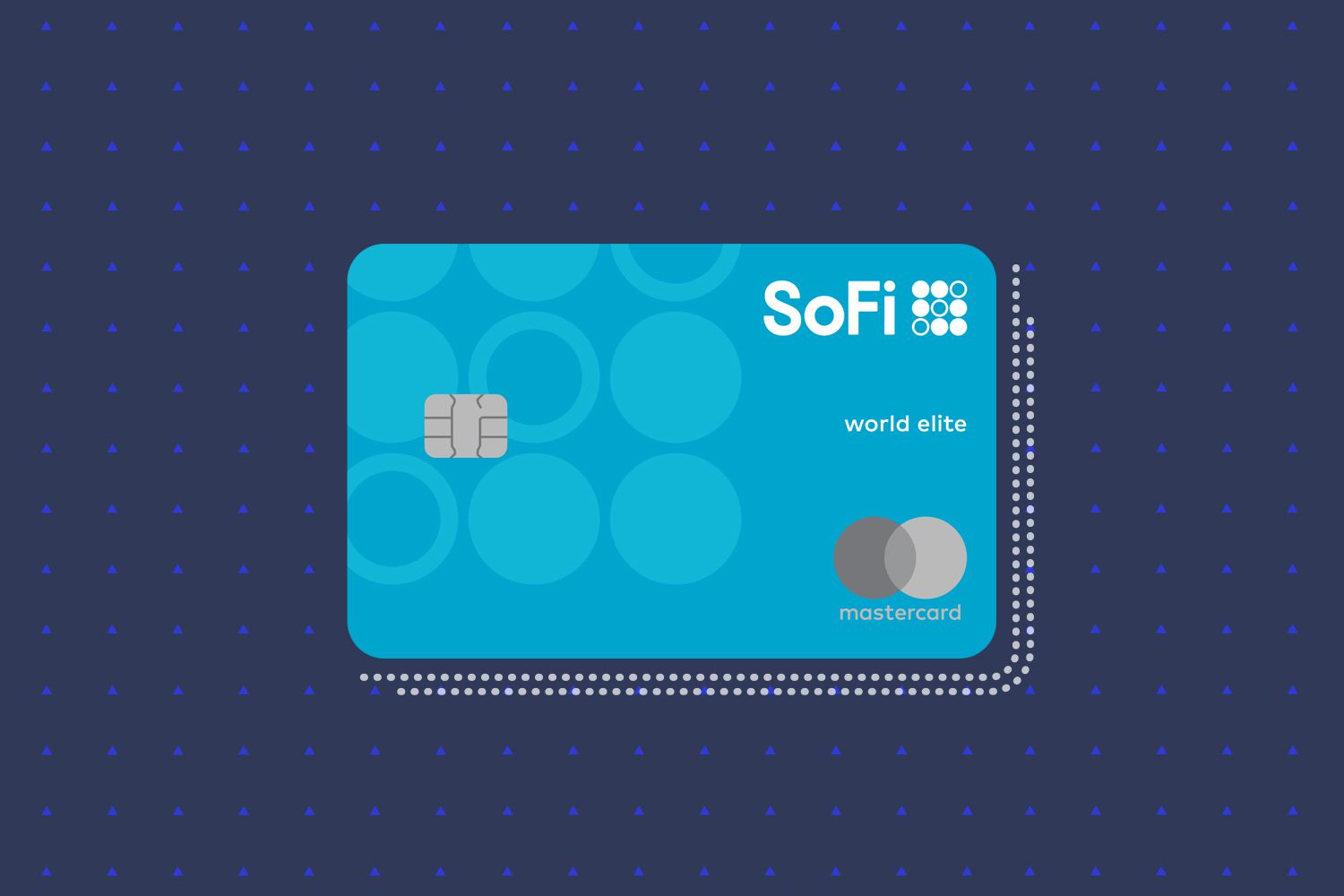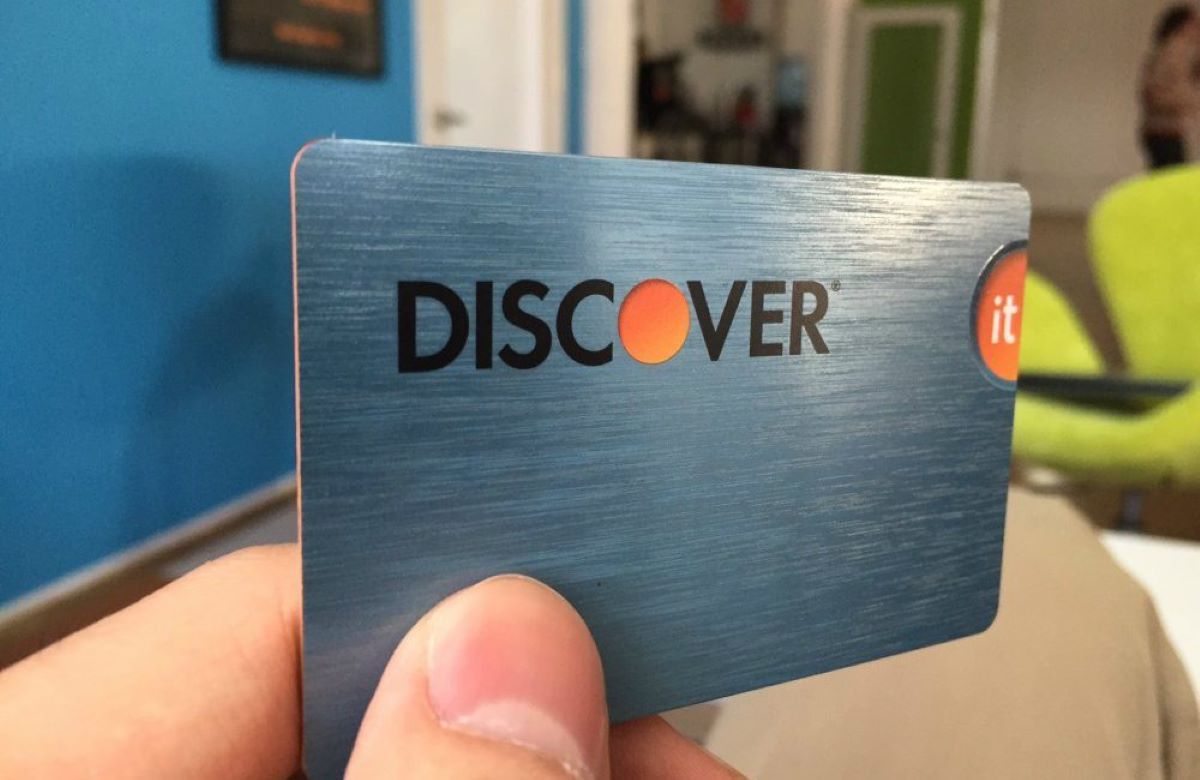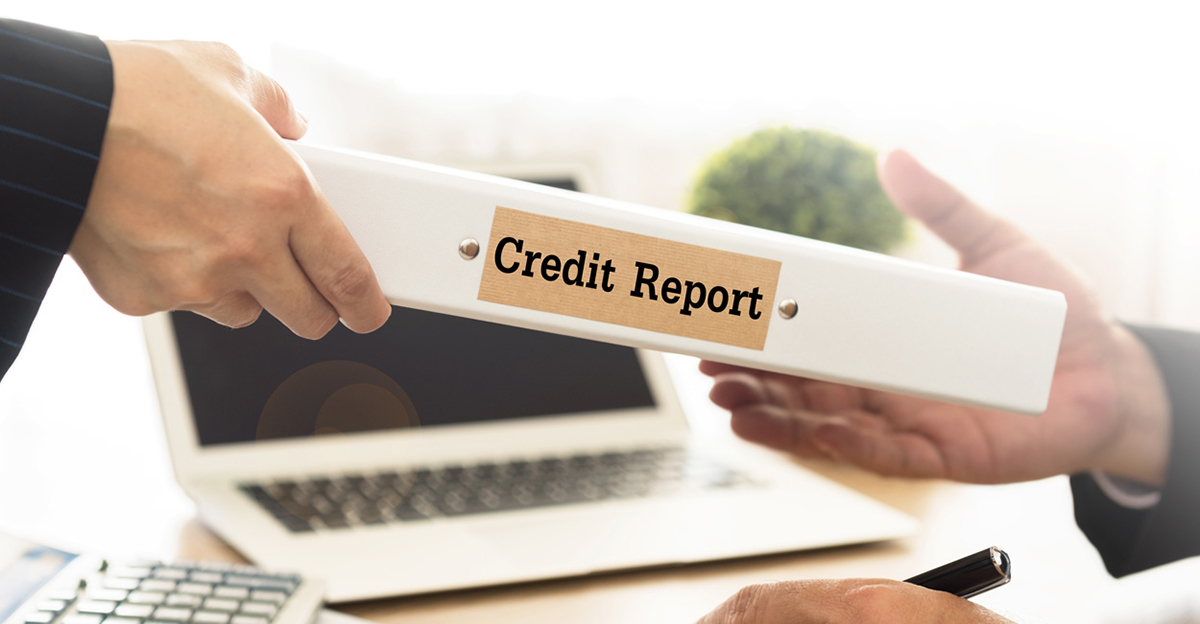

Finance
Who Does Capital One Pull Credit From
Published: January 7, 2024
Find out who Capital One pulls credit from in the world of finance. Maximize your chances of approval by knowing where to direct your credit applications.
(Many of the links in this article redirect to a specific reviewed product. Your purchase of these products through affiliate links helps to generate commission for LiveWell, at no extra cost. Learn more)
Table of Contents
Introduction
When it comes to managing your finances, understanding your credit is of utmost importance. One crucial aspect of credit management is knowing who checks your credit report. In this article, we will focus on Capital One, a renowned financial institution, and explore who they pull credit from.
Capital One is a prominent bank that offers a wide range of financial services, including credit cards, loans, and banking products. With millions of customers worldwide, the company holds a significant presence in the financial landscape. As a major player in the credit industry, it is natural for individuals to wonder which credit reporting agencies Capital One relies on when assessing creditworthiness.
Understanding why a financial institution like Capital One pulls credit is essential. By pulling credit, they gather crucial information about an individual’s credit history and financial behavior. This information helps them make informed decisions regarding credit approval, interest rates, and credit limits for potential customers.
In the following sections, we will delve into the credit reporting agencies used by Capital One, the process they employ to pull credit, and the factors they consider when assessing an individual’s creditworthiness. We will also explore how you can check which credit report Capital One has pulled for you.
So, if you’re curious to discover who Capital One pulls credit from and gain insights into the process, read on to get a comprehensive understanding of this vital aspect of credit management.
What is Capital One?
Capital One is a well-known financial institution that provides a wide range of financial products and services to consumers and businesses. Founded in 1988, Capital One has grown to become one of the largest banks in the United States, with a strong presence in the credit card market.
As a leading bank, Capital One offers a variety of financial products, including credit cards, personal loans, auto loans, banking services, and more. They are known for their innovation in the credit card industry, offering rewards programs and tailored credit solutions to meet the diverse needs of their customers.
Capital One has earned a reputation for its emphasis on customer experience, offering user-friendly online and mobile banking platforms. They strive to provide convenient and accessible banking services, allowing customers to manage their finances anytime, anywhere.
In addition to their consumer banking offerings, Capital One also serves businesses with specialized financial solutions. From small businesses to large corporations, Capital One offers business credit cards, commercial loans, and treasury management services to support the growth and success of businesses.
With a strong commitment to financial education, Capital One provides resources and tools to help individuals and businesses make informed financial decisions. They offer educational materials, credit monitoring services, and credit-building programs to empower their customers to achieve their financial goals.
Overall, Capital One is a prominent financial institution that combines innovation, customer-focused solutions, and a comprehensive range of products and services. Whether you need a credit card, a loan, or banking services, Capital One has become a trusted name in the industry, offering convenience, accessibility, and tailored solutions to meet your financial needs.
Why Does Capital One Pull Credit?
Capital One, like other financial institutions, pulls credit to assess the creditworthiness of individuals applying for their financial products and services. The primary purpose of pulling credit is to evaluate the risk associated with extending credit to a borrower.
By pulling credit, Capital One obtains crucial information about an individual’s credit history, including their payment history, outstanding debts, and any negative remarks or delinquencies. This information helps them make informed decisions about approving credit applications, determining interest rates, and setting credit limits. Essentially, they want to ensure that lending to a particular individual is a financially sound decision.
Pulling credit also allows Capital One to better understand an individual’s financial behavior and habits. By assessing credit reports, they can gain insights into factors such as the individual’s level of responsibility in managing credit, their ability to make timely payments, and their overall debt-to-income ratio. This information helps them gauge the individual’s ability to repay the borrowed funds and manage credit responsibly.
Another reason why Capital One pulls credit is to comply with regulatory requirements. Financial institutions are required to check a person’s creditworthiness before offering credit products to ensure compliance with relevant laws and regulations. This helps safeguard both the institution and the individual against potential financial risks.
Moreover, pulling credit allows Capital One to tailor their offerings to meet the specific needs and financial profiles of individuals. Based on the information obtained from credit reports, they can recommend suitable credit cards, loans, or other financial products that align with the individual’s credit history and financial goals. This personalized approach enhances the customer experience and increases the likelihood of successful credit management.
Overall, Capital One pulls credit to make informed decisions regarding credit approvals, interest rates, and credit limits. By assessing credit reports, they can evaluate an individual’s creditworthiness, financial behavior, and ability to manage credit responsibly. This helps them mitigate risks, comply with regulations, and provide tailored financial solutions to their customers.
Credit Reporting Agencies Used by Capital One
When Capital One needs to pull credit to evaluate an individual’s creditworthiness, they rely on information from the three major credit reporting agencies: Equifax, Experian, and TransUnion. These credit reporting agencies are responsible for collecting and maintaining credit information on individuals and businesses.
Each of these agencies gathers data from various sources, including banks, lenders, credit card companies, and other financial institutions. They compile this data into credit reports, which provide a comprehensive overview of an individual’s credit history and financial behavior.
Capital One, like many financial institutions, pulls credit reports from all three major credit reporting agencies to gather a complete and accurate picture of an individual’s creditworthiness. By accessing credit reports from multiple bureaus, they can ensure a more robust assessment of an individual’s credit profile and make well-informed decisions regarding credit approvals and terms.
It’s important to note that the information contained in credit reports may vary across the different credit reporting agencies. While the fundamental credit information such as payment history, account balances, and credit utilization should align, there may be slight discrepancies due to differences in reporting practices or data sources.
By pulling credit reports from multiple agencies, Capital One seeks to minimize the impact of any discrepancies and gain a comprehensive understanding of an individual’s creditworthiness. This helps them make fair and accurate assessments, ensuring that credit decisions are based on reliable data.
Furthermore, individuals also benefit from this practice of pulling credit from multiple credit reporting agencies. If there are errors or inaccuracies on one credit report, they can address and rectify the issues, knowing that multiple reports are being considered by financial institutions like Capital One.
In summary, Capital One relies on Equifax, Experian, and TransUnion – the three major credit reporting agencies – to gather credit information on individuals. By accessing credit reports from multiple bureaus, Capital One can make well-informed decisions regarding credit approvals and terms. This practice helps ensure a comprehensive assessment of an individual’s creditworthiness and benefits both the institution and the individual.
How Does Capital One Pull Credit?
Capital One pulls credit by accessing credit reports from the three major credit reporting agencies: Equifax, Experian, and TransUnion. They rely on these credit reporting agencies to provide them with accurate and up-to-date credit information on individuals applying for their financial products and services.
When an individual applies for a credit card, loan, or any other financial product from Capital One, the institution initiates a credit check. This involves requesting the individual’s credit report from one or more of the credit reporting agencies. The credit report contains crucial information about the individual’s credit history, including their payment history, outstanding debts, accounts in good standing, and any negative marks or delinquencies.
The process of pulling credit typically begins with the individual providing their consent for Capital One to access their credit report. This may be done through an online application, over the phone, or via a paper application. Once the consent is obtained, Capital One proceeds to request the credit report from the relevant credit reporting agency.
Upon receiving the credit report, Capital One’s underwriters and credit analysts review the information to assess the individual’s creditworthiness. They consider factors such as the individual’s payment history, credit utilization, length of credit history, and any negative remarks or delinquencies. This evaluation helps them determine the likelihood of the individual repaying the borrowed funds and managing credit responsibly.
It’s important to note that Capital One, like other financial institutions, follows strict security and privacy measures when pulling credit. They adhere to industry regulations to ensure the protection and confidentiality of the individual’s personal and credit information.
Capital One’s process of pulling credit is designed to provide a comprehensive assessment of an individual’s credit profile. By accessing credit reports from multiple credit reporting agencies, they ensure a more accurate evaluation of the individual’s creditworthiness. The process helps them make informed decisions regarding credit approvals, interest rates, and credit limits while mitigating risks.
In summary, Capital One pulls credit by requesting credit reports from Equifax, Experian, and TransUnion – the major credit reporting agencies. They review the information contained in the credit reports to assess an individual’s creditworthiness. The process follows strict security and privacy protocols to protect the individual’s confidential information.
Factors Considered by Capital One in Credit Pull
When Capital One pulls credit, several factors are taken into consideration to assess an individual’s creditworthiness. These factors help Capital One make informed decisions regarding credit approvals, interest rates, and credit limits. Here are some key factors that Capital One considers:
- Payment History: Capital One evaluates an individual’s payment history to see if they have a record of making timely payments on their credit accounts. Consistent on-time payments are a positive indicator of creditworthiness. Conversely, late payments, defaults, or accounts in collections can negatively impact the credit assessment.
- Credit Utilization: Capital One looks at an individual’s credit utilization, which is the percentage of available credit they are currently using. A lower credit utilization is generally viewed positively, as it suggests responsible credit management and a lower risk of defaulting on payments.
- Length of Credit History: Capital One considers the length of an individual’s credit history. A longer credit history provides a more comprehensive view of the individual’s credit behavior and repayment patterns. It allows Capital One to assess their creditworthiness more accurately.
- Types of Credit: Capital One reviews the mix of credit accounts an individual has, such as credit cards, loans, and mortgages. Having a diverse mix of credit accounts can demonstrate responsible credit management and can be viewed positively.
- Recent Credit Inquiries: Capital One takes note of recent credit inquiries made by the individual. Multiple inquiries within a short period may indicate a higher level of credit-seeking behavior, which could be viewed as a potential risk factor.
- Public Records and Negative Remarks: Capital One assesses public records, such as bankruptcies, foreclosures, or tax liens, which can significantly impact an individual’s creditworthiness. They also consider any negative remarks on the credit report, such as delinquent accounts or collections.
- Income and Debt-to-Income Ratio: While the credit report provides information on an individual’s credit behavior, Capital One may also consider income and debt-to-income ratio. This helps them assess the individual’s ability to handle additional credit obligations based on their current financial situation.
It’s important to note that while these factors play a significant role in the credit assessment process, the weight assigned to each factor may vary depending on the specific circumstances and the individual’s overall financial profile.
By considering these factors, Capital One can make fair and accurate assessments of an individual’s creditworthiness. This helps them determine suitable credit products, interest rates, and credit limits that align with the individual’s credit history and financial capability.
How Can You Check Your Credit Report Pulled by Capital One?
If you want to check the credit report that Capital One has pulled for you, there are a few ways to do so. Here are the steps you can take to access and review your credit report:
- Utilize Free Annual Credit Reports: The three major credit reporting agencies – Equifax, Experian, and TransUnion – are required by law to provide individuals with a free credit report annually. You can request your free annual credit report from each of these agencies through the official website AnnualCreditReport.com.
- Monitor Credit Monitoring Services: Capital One offers its customers access to credit monitoring services. These services allow you to regularly check and monitor your credit report. Through these services, you can stay updated on any changes or updates to your credit report, such as new accounts, credit inquiries, or potential fraud.
- Sign Up for Credit Reporting Agency Services: You can also sign up for credit reporting services offered by Equifax, Experian, or TransUnion. These services often provide access to your credit report, credit scores, and additional credit monitoring features. They may be available for a monthly fee.
- Contact the Credit Reporting Agencies: If you suspect that Capital One has pulled your credit, you can directly contact the credit reporting agencies to inquire about your credit report. You can reach out to Equifax, Experian, and TransUnion to request a copy of your credit report and review the information they have on file.
- Contact Capital One: Lastly, you can reach out to Capital One directly and inquire about the credit report they have pulled for you. They may be able to provide you with the details or guide you on how to access your credit report through the appropriate channels.
It’s important to regularly review your credit report to ensure its accuracy and identify any potential errors or fraudulent activity. By monitoring your credit report, you can stay informed about your credit status and take necessary actions to maintain a healthy credit profile.
Remember, accessing and reviewing your credit report is an essential part of credit management. It allows you to understand how your creditworthiness is evaluated and take proactive steps to improve or maintain a good credit score.
Conclusion
Understanding who Capital One pulls credit from is crucial when it comes to managing your finances and applying for their financial products and services. By pulling credit from the three major credit reporting agencies – Equifax, Experian, and TransUnion – Capital One gathers essential credit information to assess an individual’s creditworthiness.
Capital One pulls credit to evaluate factors such as payment history, credit utilization, length of credit history, types of credit, recent credit inquiries, public records, and income. By considering these factors, Capital One makes informed decisions regarding credit approvals, interest rates, and credit limits. This process helps them assess the level of risk associated with extending credit to an individual and tailor their offerings to align with their credit profile.
To check the credit report that Capital One has pulled for you, you can utilize free annual credit reports provided by the credit reporting agencies, sign up for credit monitoring services, or directly contact Capital One and the credit reporting agencies for more information. Regularly reviewing your credit report is crucial to identify any errors, potential fraud, or discrepancies that may impact your creditworthiness.
Knowing who Capital One pulls credit from and understanding their credit assessment process empowers you as a consumer. It allows you to take control of your credit management, make informed financial decisions, and work towards building and maintaining a strong credit profile.
In conclusion, being aware of the credit reporting agencies used by Capital One, the factors they consider in credit pulls, and how to check your credit report pulled by them gives you a comprehensive understanding of this vital aspect of credit management. It enables you to navigate the financial landscape with confidence and make informed choices that align with your financial goals.














